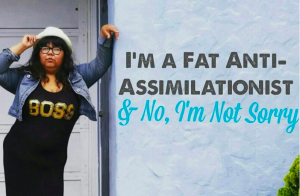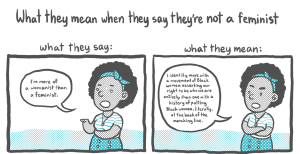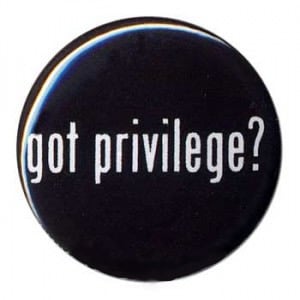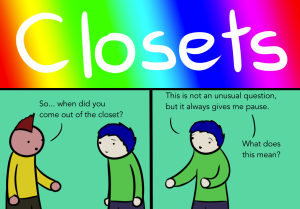Inclusivity is the crux of feminism.
But, if feminism truly is for everyone as much as we say, why do we so frequently talk about it at the expense of a very large group of women?
I’m talking about stay-at-home-moms and wives — specifically cisgender women in heterosexual relationships with cisgender men — who seem to be regularly excluded from the movement because of their willingness to place raising families and children over the pursuit of a career.
The mainstream understanding of feminism seems to view women who choose to stay at home as catering to the patriarchy’s prescribed gender norms.
We’re taught that to be radical is to not want children or a significant other — and sometimes to go as far as writing that desire off as utterly reprehensible.
On the other hand, women who choose to focus on their careers, instead of prioritizing family, are widely-praised bastions of feminism who use their fierce independence and intelligence to contribute to academia, the GDP, literature, and any other traditionally male-dominated field you can think of.
When I first began to delve into feminism, I thought there was definitely a clear distinction between women who prioritized their careers and women who prioritized building families, particularly with their spouse. I regularly wondered that if feminism championed independence, what could be more antithetical than relying on a spouse’s income?
Although I eventually learned that feminism is much more multi-faceted than financial independence and ultimately advocates for the freedom of independence, I assumed that feminism was this tug of war between these two juxtaposing “sects” of women — a divide created by patriarchy and cemented by mainstream feminist movements.
I was in my final year of college perusing the job market when, at the same time, engagement rings seemed to sparkle upon the finger of every girl in my classes. Even though I went to one of the largest public universities in the country, its rural location ensured many of our student body came from smaller towns with backgrounds steeped in more traditionally religious and gendered values.
This meant that there were a higher percentage of women getting engaged, married, and settling down in the masses — every one of my Facebook procrastination breaks involved scrolling through a flurry of bridal gowns on my news feed.
It felt unnatural to want to settle down so early, so I wrote off these women as the very antithesis of feminism while saluting the self-proclaimed single cat ladies who were out there pursuing their wild career dreams. The married women’s adherence to standard gender roles made me feel more empowered about my decision to actively work towards gender equality by pursuing a career external to my home and family.
Here’s why so many of us instinctively gravitate to such a mindset: the debate between whether stay-at-home mothers can be feminists is a distorted product of feminism’s advocation of financial independence.
Nobody likes to admit it, but money runs our lives and achieving our own economic agency is not only empowering, but allows us to independently lead the lives we have the right to.
When it comes to making a name for ourselves, being present in every industry and living off our own money is so integral to equality.
Since many stay-at-home mothers do not have their own income, their choices can seem like an intentional decision to diminish their full potential. In the cishetero sphere, the sole reliance on a man’s income works to further the rift.
I want to say that engaging in heteronormative gender roles, choosing to make parenting and/or nurturing a partner your life’s work, and not being financially independent are not problems in and of themselves. At all.
However, when women who are stay at home wives and mothers are in situations where they cannot maximize their potential as humans because of compulsive or forced social andor political reasons, their obligation of standard gender roles does become a problem.
When women consciously choose to raise a family and take care of household matters, that shouldn’t be anyone’s business but theirs.
And it’s not un-feminist!
Taking away feminism from women who opt to nurture their family is like saying people who choose to be vegan, despite an array of meat and dairy products they could have, are not receiving the full culinary experience of life you believe they should.
It was prejudiced of me to jump to such conclusions, but for most of us it takes some time to weed out the societal conditioning when adopting new forms of activism.
I’m sure I was not alone in this thinking, and I’m sure I am not alone in altering my ways. I’ve met married women and stay-at-home mothers who are intelligent, independent, and as invested in their passion and activism as women without a partner and/or kids.
Their responsibilities at home don’t make them any less ambitious, any less aware of, or any less committed to feminism.
The more time I’ve spent on the internet — and at this point, who hasn’t? — the more I’ve realized how much not having children gets bedazzled to the point to where it diminishes the feminism of women in different economic situations. Think about every article, listicle, or tweet that champions chronic singleness at the expense of relationships or marriages.
Similar to how I glorified single cat ladies, we’re constantly bombarded with (often humorous) internet jokes about loving pets while hating babies, why pizza is better than boys, etc. And as much as I love those memes and understand any joker’s need to cater to the underdog, I can’t help but feeling a little bad for the women who do really, really love children.
It’s unfair to believe they don’t respect themselves as women because of that.
In the spirit of catering to the underdog, I’ll start by really examining myself, my biases and prejudices, and really unpacking five anti-feminist stereotypes I used to harbor about stay-at-home moms — and why they’re wrong:
1. They Are Purposely Unaware Of The Choices Available To Them
Feminism encompasses many aspects, whether it is regarding wage equality, body positivity, better policing against sexual harassment, women’s health — the list goes on. But the common denominator amongst all of this is choice.
Feminism, at its core, advocates the freedom of choice.
Wage equality allows us to choose a career in which we are justly rewarded for the work we put in, thus allowing us to live a balanced life. Positive body image allows us to choose how we want to look without any restrictions.
Efficient policing against sexual harassment is relieving in the knowledge that women are choosing sex that involves consent and mutual respect. Better access to women’s health allows us to choose what is best for our health and bodies.
So if feminism allows us freedom and accessibility, why should it be any different for women who choose to be homemakers?
Stay-at-home mothers aren’t oblivious to feminism — in fact, many of them identify with the movement. They know that they have the freedom to pursue any path they want, and that with any choice will come sacrifice.
For those of us who find our fulfillment through our careers, we are sacrificing time that could be spent with friends or family. For a stay-at-home mother, she’s choosing to raise her children by sacrificing time that could be spent building a career.
If that’s what she believes is best for herself and her family, then her exercising her individual discretion is as feminist as can be.
When a mother is actually unaware and/or restricted from the choices that could and should be available to her, that’s when being a stay-at-home mom turns into a problem for feminism. In this instance, a higher institution of power is confining her to motherhood and forbidding her basic rights such as education. That’s when we need to intervene.
But when we make prejudiced assumptions about people’s choices and awareness, and intervene from that place, we’re actually being assumption.
2. One Woman’s Choice Must Reflect The Choices Of All Women
There’s a very antiquated, survival-focused part of our brains that, in the interest of self-preservation, is quick to make sweeping generalizations about a group of people whose experiences we haven’t been through ourselves.
For example, our country’s legislative body comprised largely of men has still, to this day, done little to nothing about addressing the wage gap due, in large part, because women typically abandon their careers when faced with motherhood. All of this strikes me as laughably ironic, considering women are abandoning careers because of inadequate options to feasibly merge childcare and work.
Of course, this is unfair to all women, whether they want children or not. Motherhood is just one potential aspect of a woman’s life.
Considering generalizations, it’s largely biased to say a woman staying-at-home must not be feminist, or even worse, not care about herself or other women.
If you’re a woman reading this, you might be concerned that stay-at-home mothers’ approach to feminism might concern stereotype threat, that is, the instance in which people feel at risk of confirming negative stereotypes about their social group.
For example, I felt that if women were continuing to bypass careers for a family, it might reflect negatively on the women who are choosing to live and work independently, and thereby threaten their credibility in the workplace.
So here’s what I learned, much to my relief: not every a choice a woman makes is representative of her feminism just because she is a woman.
And we are all a little bit guilty of not taking heed of that. Imagine if every single thing you ever did or ever wanted to do in your life is constantly measured up against feminist ideals and whether or not you deserve to be part of a movement that is ultimately championing your rights, as well as anyone else’s.
As feminist blog Glosswatch declares, one objective of feminism should be to help women’s decisions become less loaded. We need to relinquish the notion that certain women are more deserving of feminism than others.
The easy way to debunk this myth is to realize that women who choose to stay at home are not, by default, against feminism. As I mentioned before, these life choices aren’t necessarily pitted against each other. Which leads me to my next point.
3. Stay-At-Home Mothers Are Anti-Feminist Because They Have Children
Consider the similar statement “stay-at-home mothers cannot be feminists.” Does that mean they are excluded from the movement or they don’t believe in it?
Let’s say mainstream feminism wants to exclude them altogether. I will acknowledge there is a bit of a growing resentment in the wider feminist movement towards women who intentionally ground their lives to a halt after having children — but many of them aren’t halting at all.
I’ve seen a lot of instances where mothers return to their jobs when they feel like they are ready or decide to continue with their education. Even if they don’t choose to work anymore, it isn’t because they gave up — they just had decidedly different ways of wanting to live their lives.
And they certainly aren’t anti-feminist.
Women who raise children and/or depend on their partner’s income are not by default dismissing the wage gap, advocating horrible health facilities for women, celebrating the patriarchy, and anything else that is quite literally the opposite of feminism. In fact, they probably have respect for themselves and others — surprise!
Those of us who make assumptions are the ones who lack respect.
Staying home to raise children inevitably leaves one parent decidedly more invested in the well-being of the family while the other is more focused on providing for it. I believe that a woman depending on her partner’s income doesn’t make her any less feminist.
In fact, one aspect of your life can’t and shouldn’t represent the entirety of your political identity.
Can you be a feminist if you’re a mother? Can you be a feminist and shave your body hair? Can you be a feminist if you like being dominated during sex?
The answer to all of those is, of course.
4. Feminists Are Not Mothers
Ahem, check the history books. Even though the first official wave of feminism began two centuries ago, strong women have existed since much longer. Let’s gloss through a few:
Abigail Adams, one of history’s earliest advocate for women’s rights, is famous for urging her husband to “remember the ladies and be more generous and favorable to them than your ancestors.”
Adams managed the family farm and finances far better than her husband could have done. In fact, she even bought public securities that ended up resulting in a hefty profit. Adams helped American soldiers and regularly corresponded with her husband with matters of the state.
She was a mother of 6 children.
Elizabeth Cady Stanton, easily credited with the beginnings of first-wave feminism, took the lead in championing the right to vote for women. She addressed divorce rights, property rights, adequate birth control, employment, and many other women’s issues that were either ignored or taboo in her time.
The birth of the 19th Amendment has been frequently credited to her relentless activism.
She was a mother of 7 children.
Anne Hutchinson revamped interpretations of religion and women and openly defied the church’s ban on women preaching. She was ultimately martyred for her cause due to her subservience being so far ahead of her time.
She was a mother of 15 children. Yes you read that correctly.
Yes it’s true these women had less opportunities than are women have now. But the point is motherhood doesn’t mean that a woman will automatically stop bettering herself.
She will continue to find fulfillment in all her tasks, whether that means going back to school, starting a job or blog, or even just getting to raise her children.
And if you happened to be lucky enough to be raised by a badass mom who instilled a fiery independence in you, along with respect for yourself and women around you, you’ve debunked this myth before you even started reading the section. Between 30-40% of mothers were of the stay-at-home variety between the mid 70s to the mid 90s, so there’s a chance yours is in there too.
5. Women Fall Into The Two Distinct Categories Of “Motherhood” And “Career-Focused”
The Atlantic writer Elizabeth Wurtzel so vehemently curb-stomped the integrity of stay-at-home mothers by insisting being a stay-at-home mom is a luxury for the rich and a job that’s not a real job because anyone can have it.
Others argue the sacrifices and endless effort of raising children definitely make it a job. This whole debate hinges on whose job is more worthy and whose job requires more effort and whose job is better for society.
The irony a lot of us seem to harbor is measuring up women against each other in this manner. The argument shouldn’t be one versus the other.
In fact, the real conundrum regarding the situation of stay-at-home mothers is when a woman, for whatever reason, is restricted from being able to achieve her full potential and thus being thrust into motherhood, full throttle.
Feminism in instances like these should be focused on better childcare and maternity leave options.
As Paige Stannard wrote in a previous article for Everyday Feminism, the subject of focus should be policies that throw away this dichotomy and allow women to find fulfillment through working and childrearing if they wish, as oppose to being in a position where they can only choose one or the other.
***
It’s difficult to make such practical, ostensible assumptions about someone’s feminism because of their willingness to prioritize a family, considering no woman’s path — whether it may be toward their career or motherhood — is the same.
I wouldn’t blame a woman who quit work because she found herself spending a majority of her paycheck on childcare, nor could I say a woman who chose to stay at home with her child after a separation with her spouse. The reasons for opting to stay at home are endless, but maybe if there were better policies implemented by our politicians and corporations, we could see more of a healthy balance of fulfillment in professional and personal environments.
In the end, we should shift our focus to the myriad hurdles women face that prompts them to choose between a career and family in the first place. Until then, it’s nice to see inclusivity transcend women from all walks in life.
[do_widget id=’text-101′]
Nikita Redkar is a Contributing Writer for Everyday Feminism. She is a freelance writer in New York City who currently interns for Fusion Network where she writes about diversity in pop culture and how it’s shifting the current landscape of racial and gender politics. When she’s not writing, she is taking classes in sketch comedy and reading bizarre astronomy theories. She likes cute animal gifs and dislikes long walks on the beach, plagues, and other cliches.
Search our 3000+ articles!
Read our articles about:
Our online racial justice training
Used by hundreds of universities, non-profits, and businesses.
Click to learn more





















